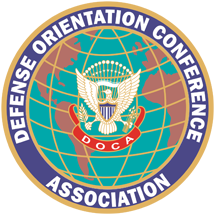The U.S. Civil-Military Divide
Ironically, as our military, intelligence, and foreign services have been engaged in the longest period of sustained conflict in the nation’s history, less than one percent of American adults have served their country on active duty. As our military shrinks, the connections between military personnel and the civilian population naturally grow more strained. This creates a destabilizing divide in our society’s ability to project power precisely when unity of effort is essential for global peace and prosperity. There is increased potential for the United States to experience, in the words of former Secretary of Defense Robert Gates, “a void of relationships and understanding of the armed forces”.
The idea of a civil-military divide is not new to American society. In some respects, military values of unity, subordination, and sacrifice run contrary to the cherished American values of individualism, acceptance, and free expression. This increasing gap, however, has potentially catastrophic implications for our capability to act decisively anytime and anywhere our interests require it. If the public fails to understand the importance and relevance of overseas missions, they may increase pressure on Congress to reduce funding for these operations. Furthermore, the ability to recruit qualified citizens to serve is severely hampered when civilians do not perceive the values of a strong and engaged military.
Why DOCA?
The Defense Orientation Conference Association (DOCA) was founded in 1952 by civilians who had participated in JCOC, a Secretary of Defense initiated and taxpayer funded program. JCOC was designed to address the then new, but growing, civil-military divide by creating a conduit to inform the private sector of the missions and operations of the Department of Defense and the challenges it faces in carrying out its goals. JCOC participants gained first-hand knowledge of the military organizations and defense strategies of our country and were given a frank appraisal of the tasks and problems faced. Early JCOC alumni decided to organize a public effort to continue the important work the SECDEF had begun and thus DOCA was born.
Over the past 70 years, DOCA has evolved from a mostly inside the beltway alumni club into a national, non-political, non-partisan, 501(c)(3) non-profit member association of civilian community leaders with the following objectives:
- To enrich member understanding in matters of national security and international relations under the jurisdiction and supervision of the Departments of Defense, State, Homeland Security, and the Intelligence Community
- To enable members to increase general awareness and understanding in our society by conveying information learned to others in their business and social communities
DOCA organizes four to six field orientation conferences annually. They are held in DoD facilities across America and abroad under DOS auspices where the United States has formal bases or established defense missions. DOCA members thereby gain an integrated view of the military establishment and national foreign policy, the problems
confronting the United States in pursuing its policies, and the economic, political, and military means required to carry them out. DOCA has members from all walks of life and would love to add your voice to ours, the only requirement to join is that approved members must be U.S. citizens with a desire to learn and share.
DOCA Gives Back
- While DOCA has the primary mission to explore, to learn, and to share, we also strongly believe in giving back.
- DOCA provides active support to the National Defense University International Fellows and Counter Terrorism Fellows programs.
Through the DOCA Defense Fund, our members make significant donations to the MWR organizations directly supporting those who serve and their families on every conference trip organized.
FIND OUT MORE AT DOCA.ORG.




